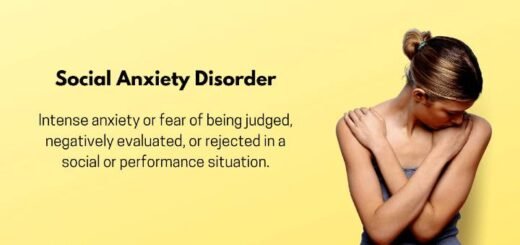Accessing Mental Health Support for Social Phobia in NZ
In New Zealand, social phobia can significantly impact individuals’ workplace experiences, leading to challenges in communication, productivity, and overall job satisfaction. The effects of social anxiety can hinder professional growth and create an isolating environment, making it essential to explore effective mental health resources tailored for Kiwis. Understanding how to access appropriate support is crucial for those struggling with these issues in their careers.
Fortunately, various resources are available to help manage social anxiety effects in the workplace. From therapy options to community support groups, New Zealand offers a range of services aimed at fostering a healthier work environment. For a comprehensive guide on overcoming social phobia at work, Kiwis can refer to this resource, which provides valuable strategies and insights for navigating these challenges effectively.
Understanding Social Phobia and Its Impact on the Workplace
Social phobia, also known as social anxiety disorder, is characterized by an intense fear of social situations where one might be judged or scrutinized. In the workplace, this can manifest as difficulty in participating in meetings, avoiding interactions with colleagues, or feeling anxious about performance evaluations. The effects of social anxiety can be debilitating, leading to decreased job performance, increased absenteeism, and even job loss. In New Zealand, social phobia affects many individuals, impacting their careers and overall quality of life. Understanding these effects is crucial for addressing the issue effectively.
In New Zealand, societal attitudes towards mental health are evolving, yet stigma still exists. Many people suffering from social anxiety may feel isolated or embarrassed to seek help. It is important to recognize that social phobia is a legitimate mental health condition and that support is available. Employers in New Zealand are increasingly recognizing the importance of mental health and are taking steps to create a more supportive work environment.
For those experiencing social anxiety effects, it’s essential to understand that help is available. Resources like Social Phobia New Zealand provide valuable information and support for individuals struggling with social phobia.
Identifying Symptoms of Social Phobia
Recognizing the symptoms of social phobia is the first step towards seeking help. Common symptoms include excessive worry about social interactions, physical symptoms like sweating or trembling when faced with social situations, and avoidance of events that may trigger anxiety. In the workplace, these symptoms may prevent individuals from speaking up in meetings, attending networking events, or forming relationships with colleagues.
It’s important for individuals to assess their feelings and behaviors objectively. Keeping a diary of social interactions and noting any anxiety triggers can provide insights into one’s specific challenges. This self-awareness can be a powerful tool in managing social anxiety.
In New Zealand, tools such as the Social Phobia New Zealand website can help individuals identify their symptoms and provide guidance on the next steps. Seeking support from mental health professionals or attending support groups can also be beneficial.
Accessing Professional Help in New Zealand
In New Zealand, various mental health services are available to assist individuals with social phobia. Accessing professional help often begins with a visit to a general practitioner (GP), who can provide a referral to a psychologist or counselor specializing in anxiety disorders. Many health professionals are trained in Cognitive Behavioral Therapy (CBT), which is an effective treatment for social anxiety.
New Zealand also offers several government-funded services, such as the Mental Health Foundation and local District Health Boards, which provide access to mental health resources and support. Private therapy options are also available, although they may involve a fee. Understanding the various pathways to access mental health support can empower individuals to take the first step toward recovery.
Additionally, online resources like Social Phobia New Zealand provide directories of mental health professionals and support groups throughout the country. It’s important for individuals to explore their options and find a mental health professional they feel comfortable with.
Workplace Accommodations for Employees with Social Phobia
Employers play a vital role in supporting employees with social phobia. Creating a workplace that is understanding and accommodating can significantly ease the challenges faced by those with social anxiety. Simple adjustments, such as providing quiet workspaces, allowing flexible working hours, and encouraging open communication can create a supportive environment for employees.
Training programs focused on mental health awareness can help colleagues understand social anxiety and its effects. This can foster a culture of empathy and support within the workplace. Encouraging employees to share their experiences and providing resources for mental health can also be beneficial.
For employees, it can be helpful to communicate their needs with supervisors or HR. Utilizing resources like Social Phobia New Zealand can provide guidance on how to approach these conversations and what accommodations may be reasonable.
Peer Support and Community Resources
Peer support can be an invaluable resource for individuals dealing with social phobia. Connecting with others who share similar experiences can provide comfort and understanding. In New Zealand, many organizations offer support groups where individuals can share their challenges and coping strategies in a safe environment.
Community resources, such as local mental health organizations, can also provide workshops and seminars focused on social anxiety management. These gatherings can promote social interaction in a controlled and supportive setting, helping individuals gradually build their confidence.
Online communities, such as forums and social media groups, can also be beneficial for those who may find in-person meetings daunting. Websites like Social Phobia New Zealand often have listings of local support groups and online resources, making it easier for individuals to find the help they need.
Strategies for Coping with Social Phobia at Work
Implementing coping strategies can help individuals manage their social anxiety in the workplace. Techniques such as deep breathing, mindfulness, and visualization can aid in reducing anxiety symptoms before and during social interactions. Preparing for meetings by rehearsing what to say or role-playing with a trusted friend can also build confidence.
Setting small, achievable goals can help individuals gradually confront their fears. For example, starting with brief interactions, such as greeting a colleague, and progressively working up to larger social situations can make the process less overwhelming.
Utilizing resources like Social Phobia New Zealand can provide additional coping strategies, tips, and techniques tailored to social anxiety challenges faced in professional settings.
Long-Term Management of Social Phobia
Managing social phobia is often a long-term process that requires ongoing effort and support. Regularly attending therapy sessions, actively engaging in support groups, and practicing coping strategies can lead to improvement over time.
Additionally, maintaining a healthy lifestyle through regular exercise, a balanced diet, and adequate sleep can significantly impact mental well-being. Mindfulness practices such as yoga or meditation can also contribute to reducing anxiety levels.
It’s essential for individuals to remain patient with themselves during the recovery process. Progress may be gradual, but every step taken towards managing social phobia is a victory. Resources like Social Phobia New Zealand can provide ongoing support and guidance for individuals seeking to manage their social anxiety effectively.
FAQs
What is social phobia and how does it affect individuals in the workplace?
Social phobia, also known as social anxiety disorder, is characterized by an intense fear of social situations, leading to significant distress and impairment in daily functioning. In the workplace, this can result in difficulties in communication, collaboration, and performance, as individuals may avoid meetings, social interactions, or even job opportunities due to their anxiety.
What are the common symptoms of social anxiety in a work environment?
Common symptoms of social anxiety in the workplace include excessive worry about being judged or embarrassed, physical symptoms such as sweating or trembling, avoidance of social interactions, and difficulty speaking up in meetings. These symptoms can hinder career progression and overall job satisfaction.
How can I access mental health resources specific to social phobia in New Zealand?
In New Zealand, individuals can access mental health resources through various channels, including visiting a general practitioner (GP) for a referral, contacting local mental health services, or reaching out to organizations such as the Anxiety NZ Trust. Many workplaces also offer Employee Assistance Programs (EAP) that provide counselling and support for mental health issues.
Are there specific therapies that can help with social anxiety in the workplace?
Yes, several therapies are effective for treating social anxiety, including cognitive-behavioral therapy (CBT), which helps individuals identify and change negative thought patterns. Exposure therapy, which gradually exposes individuals to anxiety-provoking social situations, can also be beneficial. Consulting with a mental health professional can help determine the best approach for each individual.
Can medication be an option for managing social phobia?
Medication can be an option for managing social phobia, particularly in conjunction with therapy. Selective serotonin reuptake inhibitors (SSRIs) and other medications may be prescribed to help alleviate symptoms. It’s important to discuss this with a healthcare provider to evaluate potential benefits and side effects.
What role do employers play in supporting employees with social anxiety?
Employers can play a crucial role in supporting employees with social anxiety by fostering an inclusive and understanding work environment. This can include providing mental health resources, offering flexible work arrangements, encouraging open communication, and training staff to recognize and support colleagues dealing with social anxiety effects.
Where can I find peer support or groups for social anxiety in New Zealand?
Peer support groups for social anxiety can be found through local mental health organizations, community centres, or online platforms. Websites like Anxiety NZ Trust often list support groups and resources. Connecting with others who share similar experiences can provide valuable encouragement and coping strategies.
References
- Social Phobia Support New Zealand – A dedicated resource providing information and support for individuals dealing with social phobia, including workplace strategies and coping mechanisms.
- Ministry of Health – Social Anxiety Disorder – The New Zealand Ministry of Health offers comprehensive information on social anxiety disorder, including symptoms, treatment options, and how to access support.
- Mental Health Foundation of New Zealand – Crisis Support – This foundation provides resources and guidance for individuals in crisis, including links to services that help with social anxiety in the workplace.
- Te Pou – Workforce Development – Te Pou offers resources and information for mental health professionals and organizations in New Zealand to support individuals with social phobia in the workplace.
- MindFood – Overcoming Social Anxiety in the Workplace – An article discussing practical strategies and tips for managing social anxiety in professional settings, tailored for New Zealand readers.




